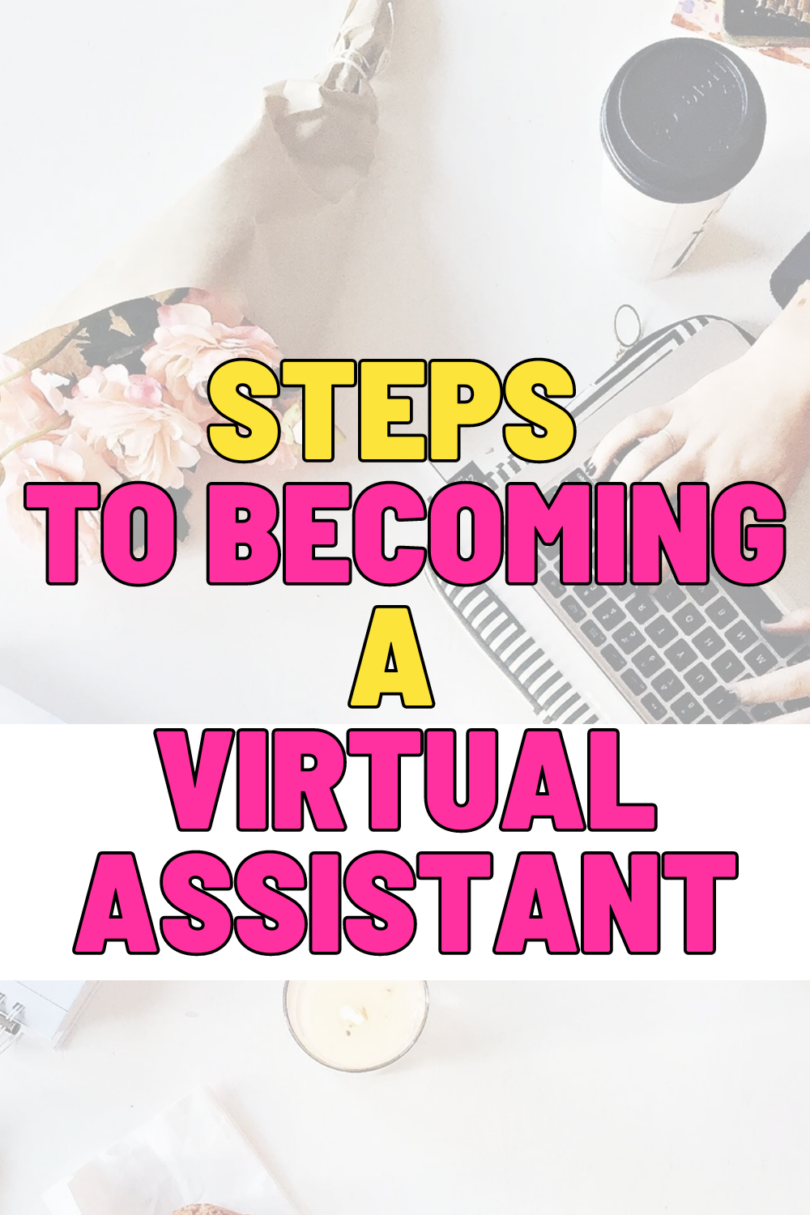Outline
- Introduction to Becoming a Virtual Assistant
- What is a Virtual Assistant?
- Definition of Virtual Assistant
- Types of Virtual Assistant Services
- Benefits of Becoming a Virtual Assistant
- Flexibility in Working Hours
- Opportunity for Remote Work
- Diverse Clientele and Industries
- Skills Required to Become a Virtual Assistant
- Administrative Skills
- Communication and Interpersonal Skills
- Technical and Software Proficiency
- Steps to Becoming a Virtual Assistant
- Step 1: Assess Your Skills and Niche
- Step 2: Build Your Portfolio
- Step 3: Set Up Your Online Presence
- Step 4: Find Clients and Market Your Services
- Essential Tools for Virtual Assistants
- Project Management Tools
- Communication Platforms
- Financial and Invoicing Software
- Challenges of Being a Virtual Assistant
- Time Management
- Client Expectations and Boundaries
- Work-Life Balance
- How to Market Yourself as a Virtual Assistant
- Create a Professional Website
- Use Social Media and Networking
- Leverage Testimonials and Referrals
- Where to Find Virtual Assistant Jobs
- Freelance Platforms
- Specialized VA Job Boards
- Networking and Referrals
- How to Set Your Rates as a Virtual Assistant
- Consider Your Experience and Skills
- Market Demand and Industry Standards
- Structuring Hourly vs. Project-Based Rates
- Should You Become a Virtual Executive Assistant?
- What is a Virtual Executive Assistant?
- Skills Needed for Executive Virtual Assistants
- Benefits of Becoming a Virtual Executive Assistant
- Legal Considerations for Virtual Assistants
- Contracts and Agreements
- Tax Implications and Business Registration
- The Future of Virtual Assistant Services
- Growing Demand for Remote Work
- AI and Automation in the VA Industry
- Conclusion
- Frequently Asked Questions
- What does a virtual assistant do daily?
- How much can I earn as a virtual assistant?
- Can I work as a VA with no experience?
- Do I need specific qualifications to become a virtual assistant?
- How can I find my first virtual assistant client?
Introduction to Becoming a Virtual Assistant
Are you tired of the 9-to-5 grind and looking for a way to work from anywhere? Becoming a virtual assistant (VA) might be the perfect solution for you! With flexible hours, the ability to choose your clients, and the opportunity to work in various industries, it’s no wonder more people are turning to virtual assistant services as a career option.
In this guide, we’ll dive into everything you need to know about becoming a virtual assistant—from the skills you need, to how to find clients, and even how to market yourself effectively.
What is a Virtual Assistant?
Definition of Virtual Assistant
A virtual assistant is a remote professional who provides administrative, technical, or creative support to clients. Virtual assistants can offer a wide range of services, depending on their expertise, which can include anything from managing emails and scheduling appointments to social media management and customer service.
Types of Virtual Assistant Services
Virtual assistant services are incredibly diverse. Some VAs specialize in administrative tasks like calendar management, while others focus on creative or technical fields like graphic design or website maintenance. You could even become a virtual executive assistant, offering high-level support to CEOs and executives.
Benefits of Becoming a Virtual Assistant
Flexibility in Working Hours
One of the biggest draws to becoming a virtual assistant is the flexibility it offers. You can set your own schedule, making it an ideal career for parents, students, or anyone looking for better work-life balance.
Opportunity for Remote Work
With the rise of remote work, the demand for virtual assistants has skyrocketed. You can work from anywhere—whether it’s your home office or a beachside café. This freedom opens up endless possibilities for work locations.
Diverse Clientele and Industries
As a virtual assistant, you can work with a wide variety of clients across different industries. This diversity keeps the job exciting and allows you to continuously learn new skills.
Skills Required to Become a Virtual Assistant
Administrative Skills
Being organized is key to providing high-quality virtual assistant services. You’ll need to manage tasks like scheduling, email handling, and data entry with precision.
Step 2: Build Your Portfolio
Even if you’re just starting out, you can create a portfolio to showcase your skills. Include any relevant experience, even if it’s not formal VA work, and make it visually appealing.
Step 3: Set Up Your Online Presence
Having a professional website and social media profiles can give you credibility. Use these platforms to showcase your services, share testimonials, and make it easy for potential clients to contact you.
Step 4: Find Clients and Market Your Services
Once you’re set up, it’s time to find clients. You can use freelance platforms, VA job boards, or even network within your existing contacts to land your first gig.
Essential Tools for Virtual Assistants
Project Management Tools
Tools like Trello, Asana, or ClickUp can help you stay organized, manage multiple projects, and communicate with clients efficiently.
Communication Platforms
Platforms like Zoom, Slack, and Microsoft Teams are essential for staying in touch with your clients, especially for virtual meetings or collaborative projects.
Financial and Invoicing Software
You’ll need to track your time and payments. Software like QuickBooks or FreshBooks can help you send professional invoices and manage your finances effectively.
Challenges of Being a Virtual Assistant
Time Management
When you’re juggling multiple clients, time management becomes crucial. Using time-tracking software and sticking to a schedule can help you stay on top of your tasks.
Client Expectations and Boundaries
Sometimes clients may expect more from you than originally agreed. Setting clear boundaries and maintaining professional communication is key to long-term success.
Work-Life Balance
While the flexibility of being a VA is great, it can also blur the lines between personal and work life. Establishing a routine and sticking to set hours can help you maintain balance.
How to Market Yourself as a Virtual Assistant
Create a Professional Website
Your website is your digital storefront. Make it easy for potential clients to understand what you do and how you can help them.
Use Social Media and Networking
Platforms like LinkedIn, Facebook groups, and Instagram can be great places to market your services and connect with potential clients.
Leverage Testimonials and Referrals
Happy clients are your best marketers. Ask for testimonials and encourage word-of-mouth referrals to grow your business.
Where to Find Virtual Assistant Jobs
Freelance Platforms
Sites like Upwork, Fiverr, and Freelancer offer countless opportunities for virtual assistants. You can set up a profile and start applying for jobs immediately.
Specialized VA Job Boards
Websites like Belay or Time Etc. specialize in matching virtual assistants with clients, offering a more focused platform for finding work.
Networking and Referrals
Sometimes the best jobs come from word-of-mouth. Don’t hesitate to reach out to your network and let them know you’re offering virtual assistant services.
How to Set Your Rates as a Virtual Assistant
Consider Your Experience and Skills
Your rates should reflect the level of experience and the complexity of the services you offer. More specialized skills often demand higher rates.
Market Demand and Industry Standards
Research what other virtual assistants are charging for similar services. This will help you set competitive, fair rates.
Structuring Hourly vs. Project-Based Rates
Some clients prefer hourly rates, while others like project-based pricing. Offering both options can make your services more appealing.
Should You Become a Virtual Executive Assistant?
What is a Virtual Executive Assistant?
A virtual executive assistant is a VA who provides high-level support to executives. This may include managing complex schedules, handling sensitive information, and coordinating between multiple departments.
Skills Needed for Executive Virtual Assistants
In addition to basic VA skills, a virtual executive assistant should have strong leadership, decision-making, and problem-solving skills.
Benefits of Becoming a Virtual Executive Assistant
Virtual executive assistants often earn higher rates due to the advanced level of service they provide. If you enjoy working in high-pressure environments, this could be a great niche for you.
Legal Considerations for Virtual Assistants
Contracts and Agreements
Always have a contract in place before starting work with a client. This protects both parties and sets clear expectations.
Tax Implications and Business Registration
Depending on where you live, you may need to register your VA business and pay taxes on your earnings. It’s wise to consult a tax professional to stay compliant.
The Future of Virtual Assistant Services
Growing Demand for Remote Work
With more companies embracing remote work, the demand for virtual assistants is expected to grow even further. This is an industry with staying power!
AI and Automation in the VA Industry
While automation and AI tools are becoming more common, there will always be a need for the human touch in virtual assistant services, especially for complex tasks.
Conclusion
Becoming a virtual assistant is an exciting and rewarding career that offers the flexibility to work from anywhere while providing valuable services to businesses and individuals. By following the steps outlined in this guide, you can successfully launch your virtual assistant career, build a client base, and grow your business.
Frequently Asked Questions
What does a virtual assistant do daily?
A virtual assistant handles various tasks, including scheduling, email management, social media, and customer service. The day-to-day activities depend on the specific services they offe
What is the potential income as a virtual assistant?
Earnings vary widely depending on experience and specialization. Entry-level VAs might earn around $15 per hour, while more experienced VAs or those with specialized skills can charge upwards of $50 per hour.
Can I work as a VA with no experience?
Yes, many virtual assistants start without prior experience. Focus on the skills you already have, build a portfolio, and offer your services at competitive rates to attract initial clients.
Are there any particular qualifications required to become a virtual assistant?
There are no formal qualifications required, but strong organizational, communication, and technical skills are essential. Experience with specific software or tools can be a plus.
How can I find my first virtual assistant client?
Start by networking within your existing contacts, join freelance platforms, or apply on VA-specific job boards. Marketing yourself through social media and a professional website can also help attract clients.







